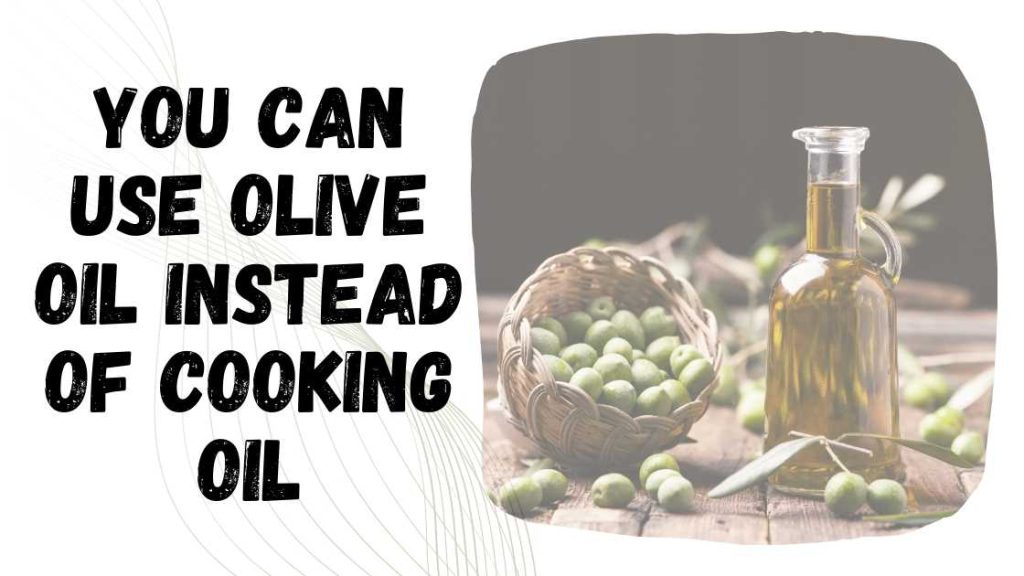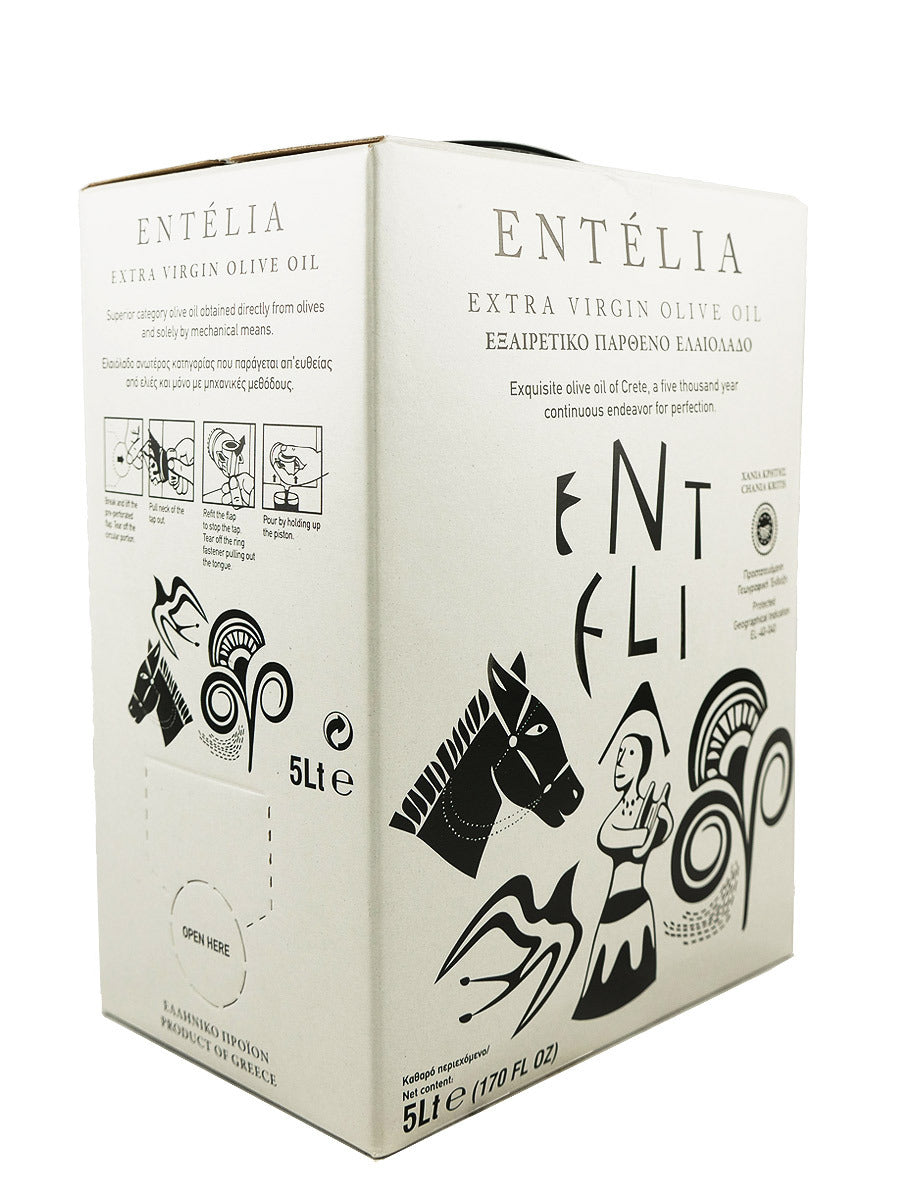Yes, you can use olive oil instead of cooking oil. Olive oil is a versatile substitute that can enhance the flavor of your dishes while providing health benefits.
For high-heat cooking, such as frying, olive oil’s lower smoke point may not be ideal, as it can lead to burnt flavors and degraded nutritional quality. In such cases, oils with higher smoke points, like canola or sunflower oil, might be preferable. Nonetheless, for everyday cooking tasks such as roasting vegetables or making salad dressings, olive oil is an excellent choice that adds a rich, fruity flavor.
| Oil Type | Smoke Point (°F) | Smoke Point (°C) | Key Nutrients | Flavor Profile |
|---|---|---|---|---|
| Olive Oil | 375 | 190 | Monounsaturated fats, antioxidants | Fruity, peppery |
| Canola Oil | 400 | 204 | Monounsaturated fats, omega-3s | Neutral |
| Sunflower Oil | 440 | 227 | Polyunsaturated fats | Mild, nutty |
| Vegetable Oil | 400 | 204 | Mostly polyunsaturated fats | Neutral |

Olive oil is known for its heart-healthy fats, particularly monounsaturated fats, which can be a better choice compared to some other cooking oils. Its distinct flavor and lower smoke point (about 375°F or 190°C) make it suitable for sautéing and medium-heat cooking. However, it’s essential to be mindful of the oil’s flavor profile, which may affect the taste of your dish, especially if it’s a delicate recipe.
Different Types of Cooking Oil
Before we delve into the potential alternatives, let’s briefly discuss the various types of cooking oil commonly used in the kitchen. Cooking oils can be categorized into different groups based on their source and composition. Some of the most popular cooking oils include:
| Sunflower oil | Canola oil | Coconut oil |
| Corn oil | Soybean oil | Peanut oil |
Cooking oils come in various types, each with its own unique flavor, smoke point, and nutritional profile. Here’s a breakdown of some common types:
1. Vegetable Oil
- Source: Usually a blend of different plant-based oils like soybean, corn, or sunflower.
- Smoke Point: 400-450°F (204-232°C).
- Best for: Frying, sautéing, and baking.
- Flavor: Neutral, making it versatile for various dishes.
2. Olive Oil
- Extra Virgin Olive Oil (EVOO)
- Source: First cold pressing of olives.
- Smoke Point: 320°F (160°C).
- Best for: Dressings, drizzling, and low-heat cooking.
- Flavor: Rich, fruity, and slightly peppery.
- Light Olive Oil
- Source: Refined olive oil with a lighter color and flavor.
- Smoke Point: 465°F (240°C).
- Best for: High-heat cooking like frying and grilling.
3. Canola Oil
- Source: Extracted from rapeseed.
- Smoke Point: 400°F (204°C).
- Best for: Frying, baking, and sautéing.
- Flavor: Mild, neutral.
4. Coconut Oil
- Source: Extracted from the meat of mature coconuts.
- Smoke Point: 350°F (177°C) for unrefined, 450°F (232°C) for refined.
- Best for: Baking, sautéing, and adding a tropical flavor.
- Flavor: Sweet, coconutty (more pronounced in unrefined versions).
5. Sesame Oil
- Light Sesame Oil
- Source: Pressed from raw sesame seeds.
- Smoke Point: 410°F (210°C).
- Best for: Stir-frying, sautéing, and deep-frying.
- Flavor: Mild and nutty.
- Dark (Toasted) Sesame Oil
- Source: Pressed from toasted sesame seeds.
- Smoke Point: 350°F (177°C).
- Best for: Drizzling, finishing, and adding to dressings.
- Flavor: Rich, intense, and nutty.

Credit: oliveoillovers.com
Using Olive Oil in Cooking
It’s prized not only for its flavor but also for its health benefits, thanks to its high content of monounsaturated fats and antioxidants. Here’s a guide on how to use olive oil in cooking, covering the different types, their ideal uses, and tips for maximizing its benefits.
Types of Olive Oil
- Extra Virgin Olive Oil (EVOO): This is the highest quality olive oil, made from pure, cold-pressed olives. It has a robust flavor, often described as fruity or peppery, and retains the most nutrients. EVOO is ideal for drizzling over dishes, making salad dressings, or finishing cooked foods. Its lower smoke point (around 375°F or 190°C) makes it less suitable for high-heat cooking, but it’s perfect for low to medium heat sautéing.
- Virgin Olive Oil: Slightly lower in quality than EVOO, virgin olive oil is also made from cold-pressed olives but may have a milder flavor. It’s suitable for cooking at medium temperatures and can be used similarly to EVOO, though it lacks the intense flavor and some health benefits.
- Pure or Regular Olive Oil: This type is a blend of virgin and refined olive oil. It has a higher smoke point (around 465°F or 240°C), making it better suited for frying or roasting. The flavor is milder than virgin or extra virgin olive oil, which makes it a good choice when you don’t want the oil’s taste to overpower your dish.
- Light Olive Oil: Despite the name, “light” refers to the oil’s flavor and color, not its calorie content. This oil is heavily refined and has a very high smoke point, making it suitable for all types of cooking, especially high-heat methods like deep frying. However, it offers fewer health benefits and lacks the rich flavor of higher-quality olive oils.
Using Olive Oil in Cooking
Sautéing and Pan-Frying: Olive oil, particularly virgin and extra virgin varieties, is excellent for sautéing vegetables, garlic, or onions. It imparts a lovely flavor that complements a wide range of ingredients. For pan-frying, you can use regular or light olive oil to achieve a crispy texture while still benefiting from its healthy fats.
Roasting: Olive oil is fantastic for roasting vegetables, meats, or even fish. Toss your ingredients in a generous amount of olive oil along with seasonings before spreading them on a baking sheet. The oil helps to caramelize the vegetables, giving them a golden, crispy exterior while keeping the interior tender.
Baking: Olive oil can be a healthier substitute for butter or other oils in baking. It works particularly well in savory bread, muffins, and cakes, adding moisture and a subtle flavor. When substituting, use about ¾ the amount of olive oil compared to butter due to its higher fat content.
Dressing and Finishing: One of the best uses for high-quality extra virgin olive oil is in salad dressings or as a finishing drizzle over dishes. Mix it with vinegar or lemon juice, salt, pepper, and herbs for a simple, flavorful vinaigrette. A drizzle of EVOO over pasta, grilled vegetables, or soups enhances flavor and adds a rich, silky texture.
Benefits of Using Olive Oil
Using olive oil in your cooking and daily diet offers numerous health and culinary benefits, making it a staple in many kitchens worldwide. Below are some of the key benefits of using olive oil:
1. Heart Health
Olive oil is rich in monounsaturated fats, particularly oleic acid, which is known to reduce inflammation and lower bad LDL cholesterol levels. High levels of LDL cholesterol can lead to heart disease and stroke. By replacing saturated fats with olive oil, you can help maintain healthy cholesterol levels and support overall heart health. Studies have also shown that olive oil may help reduce blood pressure, another key factor in heart disease prevention.
2. Rich in Antioxidants
Extra virgin olive oil, in particular, is loaded with antioxidants like vitamin E and polyphenols. These compounds protect your body from oxidative stress, which is a major contributor to chronic diseases, including heart disease and cancer. Antioxidants also have anti-inflammatory properties, which can help reduce the risk of chronic inflammation-related diseases.
3. Anti-Inflammatory Properties
Chronic inflammation is linked to many diseases, including heart disease, cancer, and diabetes. Olive oil contains oleocanthal, a compound that mimics the anti-inflammatory effects of ibuprofen. Regular consumption of olive oil may help reduce inflammation in the body, contributing to a lower risk of developing inflammatory diseases.
4. Supports Weight Management
Despite being calorie-dense, olive oil can support weight management. The monounsaturated fats in olive oil can increase feelings of fullness, helping to control appetite and reduce overeating. Some studies suggest that diets rich in olive oil, such as the Mediterranean diet, can lead to better weight management compared to low-fat diets.
5. Improves Digestive Health
Olive oil has been shown to support healthy digestion. It can help in the absorption of fat-soluble vitamins (A, D, E, and K) and has a mild laxative effect that can promote regular bowel movements. Additionally, the anti-inflammatory properties of olive oil can help soothe the lining of the stomach and intestines, which is beneficial for people with digestive disorders like gastritis.
6. Skin Health
Olive oil is also beneficial for your skin, both when consumed and applied topically. The antioxidants and healthy fats in olive oil help to maintain skin elasticity, moisture, and a youthful appearance. Applying olive oil to the skin can provide deep hydration, and its anti-inflammatory properties can help soothe conditions like eczema and psoriasis.
7. May Reduce Cancer Risk
The high antioxidant content in olive oil helps neutralize free radicals, which can damage cells and lead to cancer. Some studies have suggested that the consumption of olive oil is associated with a lower risk of certain types of cancer, including breast cancer. The oleocanthal compound in olive oil has also been found to kill cancer cells in test-tube studies.
When Can Olive Oil Be Used as a Substitute?
Olive oil can be a versatile substitute in various cooking and baking scenarios, offering both health benefits and a distinct flavor. Here’s when and how you can use olive oil as a substitute:
1. Substitute for Butter
- Baking: Olive oil can replace butter in many baked goods, such as cakes, muffins, and quick breads. Since olive oil has a higher fat content than butter, use about ¾ of the amount of butter called for in a recipe. For example, if a recipe calls for 1 cup of butter, use ¾ cup of olive oil. This substitution works particularly well in recipes where a slightly fruity or savory flavor is desirable, such as in lemon cakes or chocolate muffins.
- Cooking: Olive oil can also replace butter for sautéing or pan-frying. Use it when you want to add a Mediterranean touch to your dish or to make it dairy-free. However, for dishes where butter’s flavor is central, like in some sauces or pastries, the substitution may alter the taste significantly.
2. Substitute for Vegetable Oil
- Baking: Olive oil can be used in place of vegetable oil in most baking recipes. The substitution is a 1:1 ratio, so if a recipe calls for 1 cup of vegetable oil, you can use 1 cup of olive oil. This works well in recipes like brownies, banana bread, or carrot cake, where the rich flavor of olive oil can complement the other ingredients.
- Cooking: Olive oil is an excellent substitute for vegetable oil in cooking, including sautéing, stir-frying, and roasting. It’s especially good in dishes where you want to add a layer of flavor that vegetable oil lacks.
3. Substitute for Canola Oil
- Baking: Similar to vegetable oil, olive oil can replace canola oil in a 1:1 ratio in most baking recipes. Canola oil is often used for its neutral flavor, so using olive oil will add a distinct taste to the dish, which can be a great enhancement in savory or earthy-flavored baked goods.
- Cooking: Olive oil can also substitute canola oil in cooking, such as for frying or grilling. However, for high-heat cooking, like deep frying, light olive oil or refined olive oil is a better substitute because of its higher smoke point.
4. Substitute for Coconut Oil
- Baking: Olive oil can replace coconut oil in baking, though it will change the flavor and texture of the final product. Olive oil has a liquid consistency at room temperature, while coconut oil is solid, so the texture of baked goods may be slightly different. The substitution ratio is typically 1:1.
- Cooking: You can substitute olive oil for coconut oil in cooking, particularly in savory dishes. The flavor profile will change, but olive oil can add a rich, smooth taste that works well in Mediterranean, Middle Eastern, and Italian cuisines.
5. Substitute for Margarine
- Baking: Olive oil can replace margarine in baking, especially in recipes like cookies, cakes, and pastries. The conversion is typically ¾ cup of olive oil for 1 cup of margarine. Since margarine often contains water and additional ingredients, using olive oil can lead to a richer, more flavorful end product.
- Cooking: Olive oil can substitute for margarine in most cooking scenarios, such as sautéing vegetables or frying eggs. It’s a healthier alternative that avoids the trans fats often found in margarine.
6. Substitute for Other Cooking Oils
- Specialty Oils: Olive oil can be a substitute for specialty oils like avocado oil or grapeseed oil. Use extra virgin olive oil for a more pronounced flavor, or light olive oil if you want a milder taste.
- Salad Dressings and Marinades: Olive oil is an excellent substitute for any oil used in salad dressings or marinades. Its rich flavor pairs well with vinegar, lemon juice, herbs, and spices.
Can Olive Oil Be Used for Frying?
Yes, olive oil can be used for frying, but it’s best suited for low to medium-heat cooking. Extra virgin olive oil has a lower smoke point, typically around 375°F (190°C), making it less ideal for high-heat frying, where oils with higher smoke points, like canola or peanut oil, are preferred. For sautéing or shallow frying, olive oil works well and adds a flavorful touch to your dishes.
Does Olive Oil Change the Taste of Food?
Olive oil has a distinct, fruity flavor that can enhance certain dishes but might not be suitable for all recipes. If you’re substituting olive oil for a neutral cooking oil, be aware that it may impart a noticeable taste. This flavor can be a great addition to salads, pastas, and Mediterranean dishes, but it might not be ideal for baked goods or dishes where a neutral flavor is desired.
Is Olive Oil Suitable for Baking?
Olive oil can be used in baking, but it’s important to consider the flavor it adds to the final product. In most cases, olive oil can replace butter or other oils in cakes, muffins, and bread. However, the fruity and robust taste of olive oil may alter the flavor profile of the baked goods. If you prefer a milder taste, you can use a light or refined olive oil instead of extra virgin.
How Do You Substitute Olive Oil for Other Cooking Oils?
To substitute olive oil for other cooking oils, you can generally use it in a 1:1 ratio. For example, if a recipe calls for one cup of vegetable oil, you can use one cup of olive oil instead. Keep in mind the type of olive oil you choose—extra virgin for a stronger flavor or light olive oil for a more subtle taste.
Can You Use Olive Oil in Salad Dressings?
Yes, olive oil is an excellent choice for salad dressings. Its rich flavor pairs well with a variety of ingredients, and it’s a common base in vinaigrettes. Extra virgin olive oil is particularly popular for dressings due to its robust taste and high-quality nutritional profile. You can mix it with vinegar, lemon juice, or mustard to create a simple and healthy dressing.
Is Olive Oil Better Than Butter for Cooking?
Olive oil is considered a healthier option than butter for cooking due to its lower saturated fat content and higher levels of heart-healthy monounsaturated fats. While butter adds richness and flavor to dishes, olive oil provides similar benefits with added health advantages. However, the choice between olive oil and butter may depend on the dish you’re preparing and the desired flavor profile.
Final Thought
In conclusion, olive oil can indeed be used as a substitute for cooking oil in many recipes, as long as its unique flavor complements the dish. It offers numerous health benefits and adds an extra touch of flavor to your creations. However, it is important to consider the smoke point and cooking method when using olive oil in place of other oils. Remember to choose the appropriate type of olive oil, depending on the required cooking temperature.
Next time you’re in the kitchen, don’t hesitate to experiment with olive oil and discover how it can transform your culinary creations into delightful and healthy dishes.

I may be a little “crazy” when it comes to cooking, but I enjoy every minute of it. Spending time in the kitchen itself, whether with my family or my friends, brings me both happiness and exhilaration. This blog was created to showcase my cooking/eating with family and friends. And also as an opportunity to discuss ideas on food and the culinary circle in general.
Pingback: 5 Best Blue Diamond Cookware Set Reviews – Kitchen World